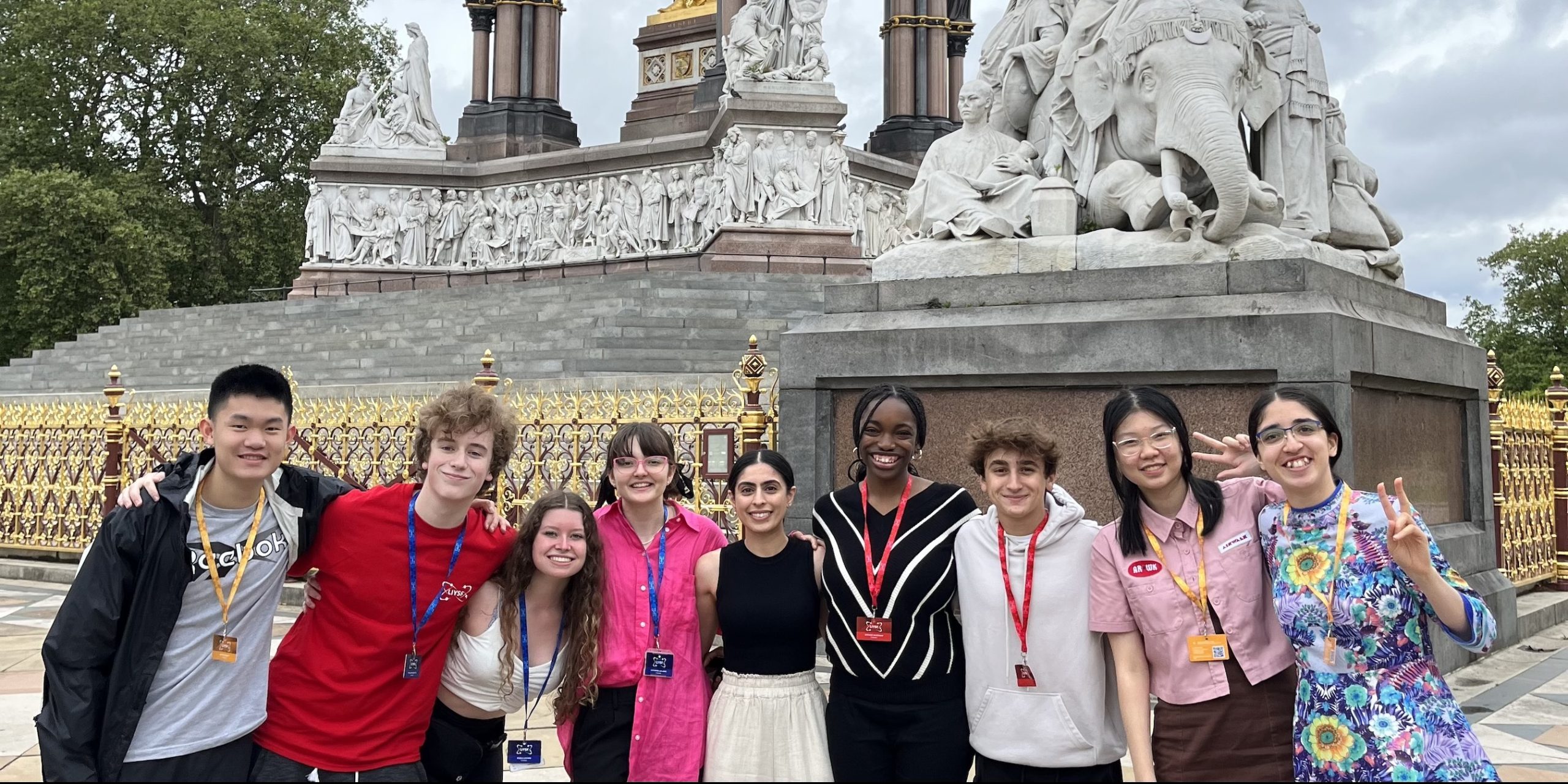Welcome to Day 5 of LIYSF!
Today was an amazing day filled with captivating lectures! We have so much to share with you all that it was difficult trying to fit it all into one post. We started off with a principal lecture from Professor Christopher Jackson, Professor of Basin Analysis at Imperial College London. He taught us about the geological record of climate change and how these changes impacted life on Earth and how this helps us in understanding climate change.
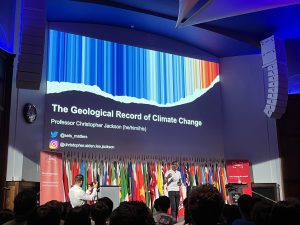

After the lecture we took a group photo with all the LIYSF participants and staff. We had a short break for lunch and then took another group photo with all our Canadian friends at the forum!
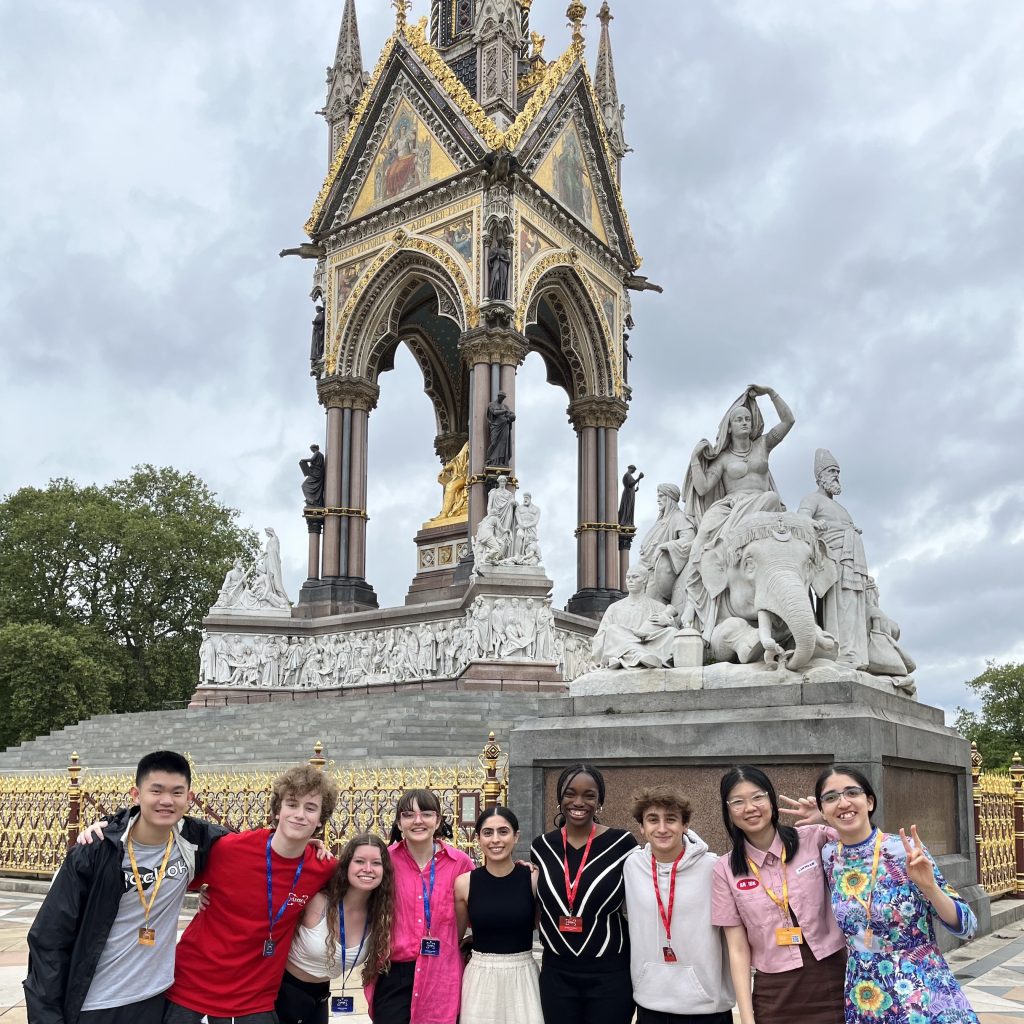
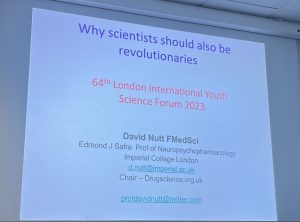 Next, was our favourite part of the day and for me, my favourite lecture at LIYSF so far! It was a specialist lecture by Dr. David Nutt on why scientists should also be revolutionaries. Professor David Nutt is a Professor of Neuropsychopharmacology at Imperial College London. His research focuses on understanding the brain’s response to drugs and the underlying mechanisms of psychiatric disorders.
Next, was our favourite part of the day and for me, my favourite lecture at LIYSF so far! It was a specialist lecture by Dr. David Nutt on why scientists should also be revolutionaries. Professor David Nutt is a Professor of Neuropsychopharmacology at Imperial College London. His research focuses on understanding the brain’s response to drugs and the underlying mechanisms of psychiatric disorders.
Dr. Nutt talked about his research on psychedelic drugs to treat psychiatric diseases like addiction and depression. He mentioned how drugs used recreationally are perceived as dangerous and are banned under national laws but research shows that they can help treat psychiatric diseases. In particular one drug that Dr. Nutt studied, psilocybin he found that this drug increased brain connectivity and allowed for new ways of thinking. After doing many trials they found that it helps treat depression and is a non-addictive drug. He ended the lecture with a quote that really stood out to me “those who cannot change their minds cannot change anything” by George Bernard Shaw. I was able to get a picture with him after the lecture!

Catherine was in Dr. Howard Haughton’s lecture on Math and Equality. Dr. Haughton covered what it means to be and look like a scientist, addressing active and inherent biases. These biases could be conscious, unconscious, and systematic. He went over formalizing these biases mathematically and onto his research of modelling inclusivity mathematically within organizations. This mathematical model can be provided to HR companies and leadership to show empirically that diversity does in fact have financial benefits to the company. Dr. Haughton finished by addressing biases in AI and the effects of this in today’s world. Dr. Haughton’s lecture taught us to be unapologetically passionate in our fields, even if none of the leaders look like us. He also taught us to persevere for our passions, and to have confidence in ourselves even if no one else does. This aligned perfectly with LIYSF’s 2023 theme “science for unity”.
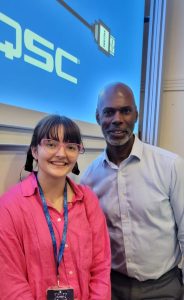
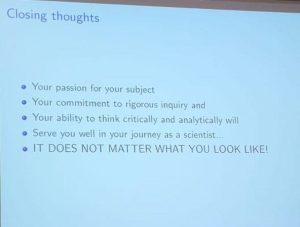
Make sure to follow along for tomorrow’s adventures!!
-Manjot

